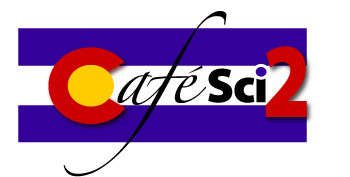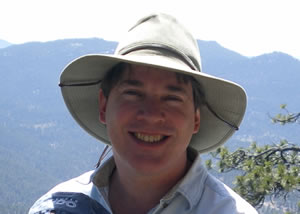|
|
|
Evolution is often viewed as moving through a static fitness landscape, and so we speak of organisms adapting to their environment, and proteins or other functional molecules adapting to best serve the needs of their organism. This is a simple way to view things, but is this the best way to view things? We know that variants of genes and the proteins they encode often interact; they have epistasis, or different effects in combination than the sum of individual effects. And we know that this leads to long-term coevolution, that molecules evolve differently depending on what changes have come before. Remarkably, we see that even at the level of a protein molecule: rather than the amino acid evolving to do what is best to make a protein work, the protein tends to evolve to suit the amino acid that is found at an individual site. This affects adaptation and convergence. From molecules to organisms to ecosystems, can we think of evolution as memory foam? If we press our hand in, the foam adjusts to the shape of our hand. If this were evolution, would we mistake this to think that the hand has adjusted to the shape of the foam? What does entropy have to do with understanding these evolutionary mechanics? I would like to change the way you think about how evolution works.
|

 David Pollock has been studying evolution since he was an undergraduate in the laboratory of UC Berkeley’s Allan C. Wilson, one of the founding fathers of molecular evolution. He received his Ph.D. in Biological Sciences from Stanford University in 1995, and then spent 5 years on his postdoc tour at the National Institute for Medical Research in London, UC Berkeley, and Los Alamos National Laboratories on a Hitchings-Elion Fellowship from the Wellcome Trust, and a Director's Fellowship from LANL. His first job as a professor was in “Evolutionary Theory” at Louisiana State University. He is now Professor of Biochemistry and Molecular Genetics at UC Denver’s School of Medicine, and is part of the Program in Human Medical Genetics and Genomics as well as Computational Bioscience. His research program focuses on the interaction between molecular sequence, structure, and evolution, and on evolutionary genomics.
David Pollock has been studying evolution since he was an undergraduate in the laboratory of UC Berkeley’s Allan C. Wilson, one of the founding fathers of molecular evolution. He received his Ph.D. in Biological Sciences from Stanford University in 1995, and then spent 5 years on his postdoc tour at the National Institute for Medical Research in London, UC Berkeley, and Los Alamos National Laboratories on a Hitchings-Elion Fellowship from the Wellcome Trust, and a Director's Fellowship from LANL. His first job as a professor was in “Evolutionary Theory” at Louisiana State University. He is now Professor of Biochemistry and Molecular Genetics at UC Denver’s School of Medicine, and is part of the Program in Human Medical Genetics and Genomics as well as Computational Bioscience. His research program focuses on the interaction between molecular sequence, structure, and evolution, and on evolutionary genomics.